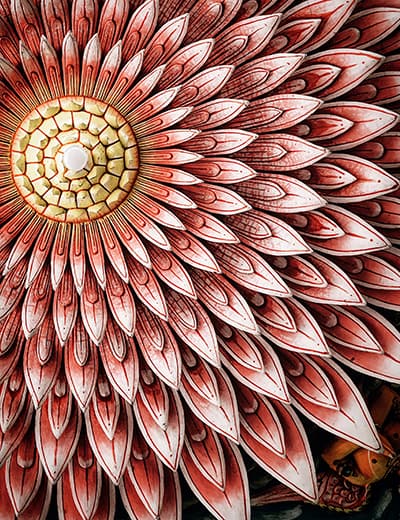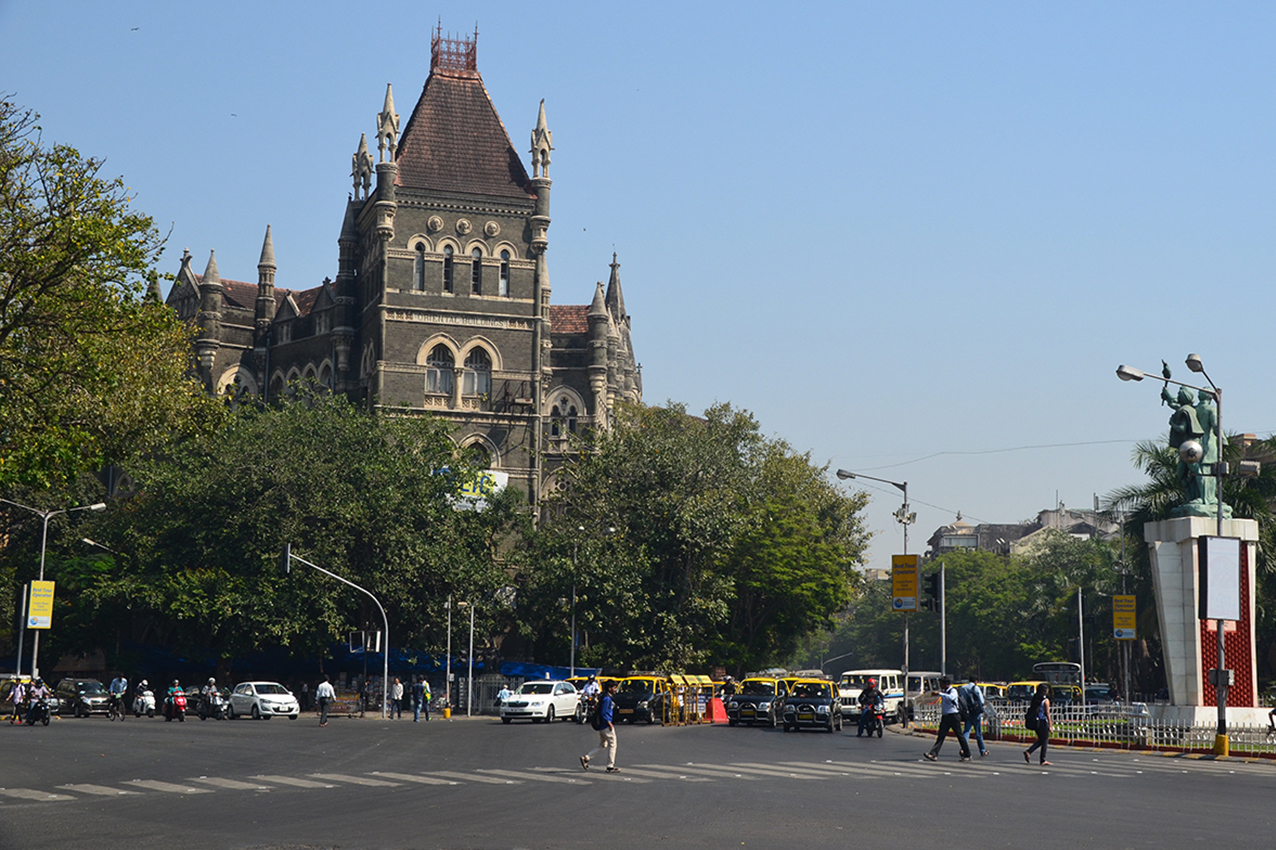
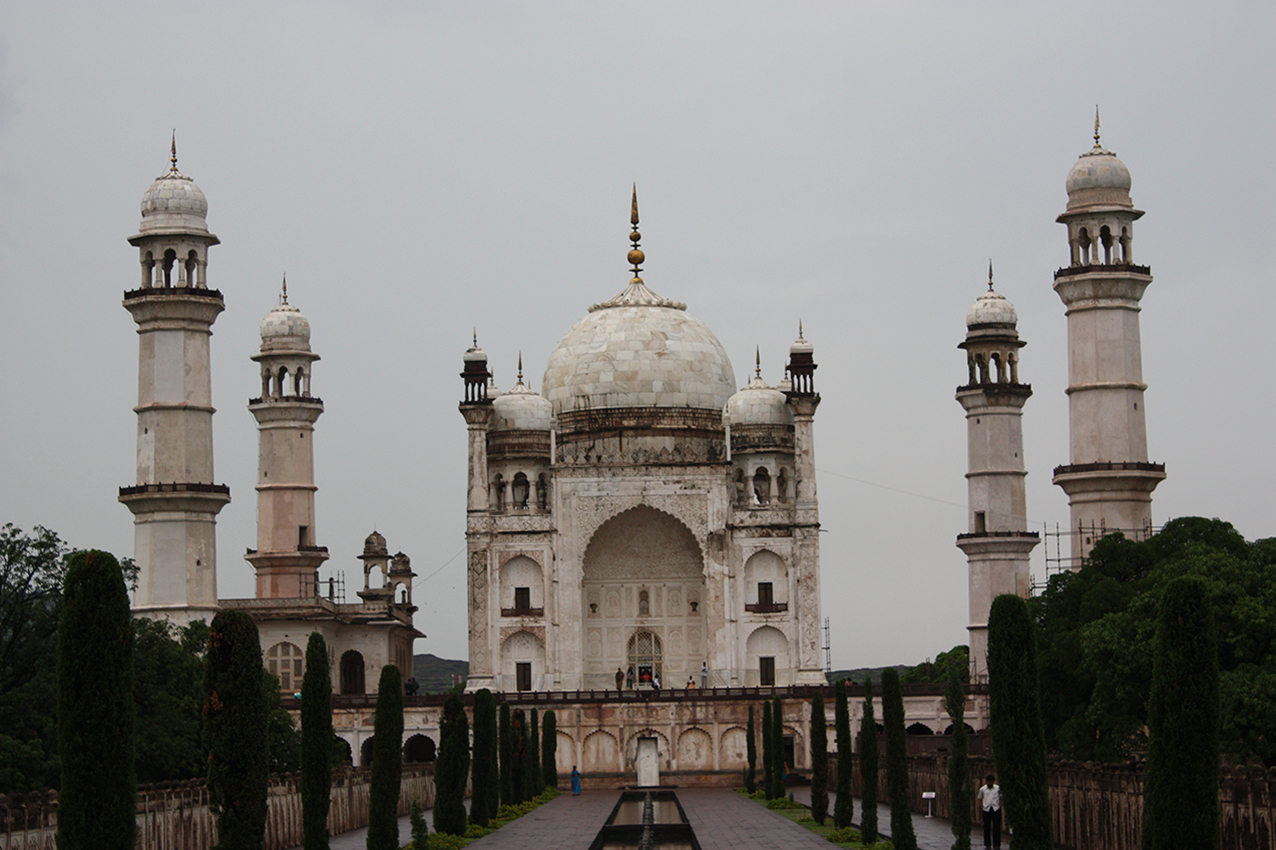
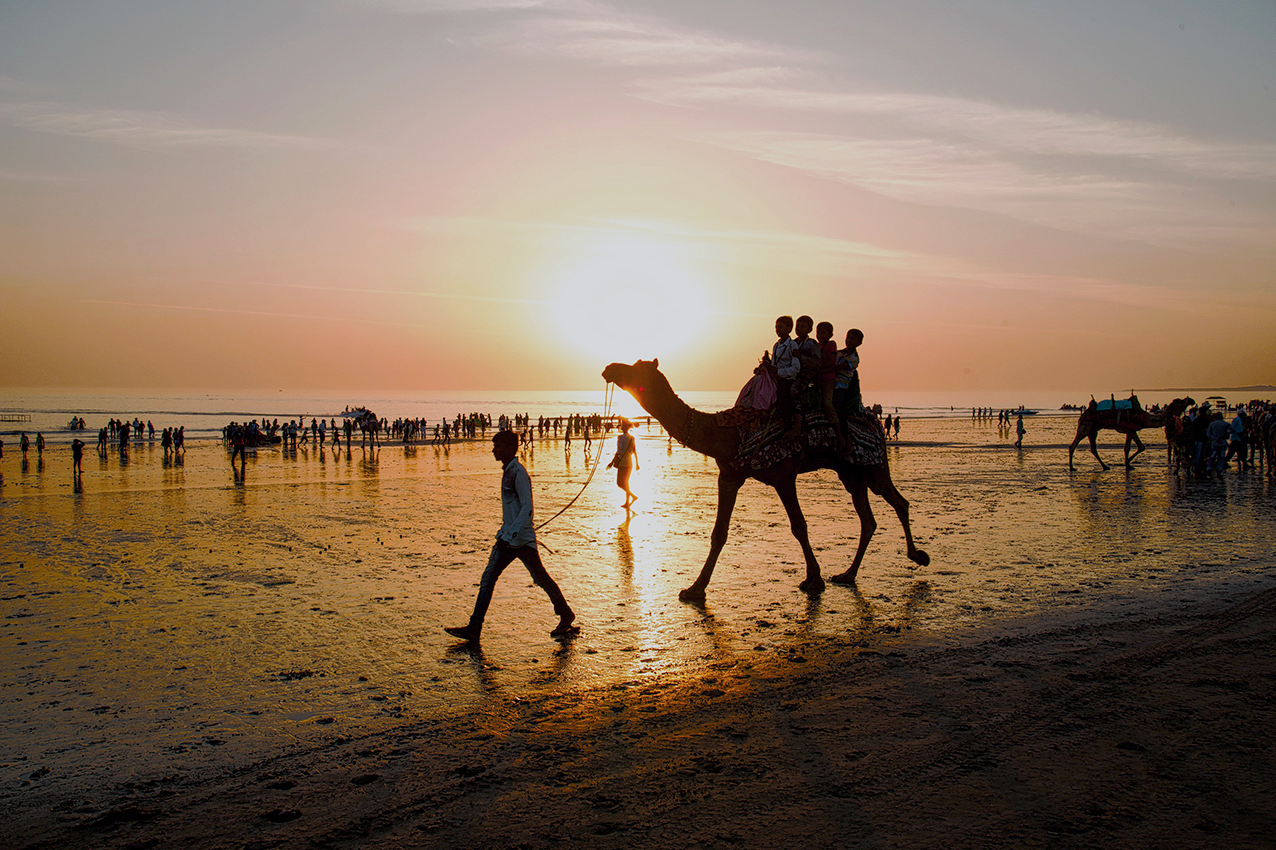
The crusty plateau softens at the edge of the Arabian sea. The first showers awaken the tropical birds. Vibrant yarns unspool with each warp and weft, bringing out the shape of a motif. The aroma of freshly spiced snacks teases a metropolitan street. The sculpted walls of an ancient cave narrate stories of a continuing tradition.
This journey is the gateway into the western fringe of India, right up to the edge of the mainland, across the many rivers that drain the tropical forests. The marks of civilisation fade in and out of view, as they slip into caves of history, Mughal monuments, UNESCO world heritage sites and relics from India’s colonial past.
We will begin in India’s financial capital, Mumbai, or the more romanticised ‘Bombay’ - a cluster of seven islands that are home to 21 million people who identify themselves as citizens of the metropolitan world. Built from 450 AD, the cave temples of Elephanta are the evidence of a glorious past that is dedicated to Shiva, the Hindu God of destruction and regeneration. A visit to the Victoria Terminus is a perfect introduction to the Gothic architecture introduced by the British in the subcontinent. The journey will segue from the flamboyant station to the corniche lined with Art Deco buildings to the Malabar Hill, into the hanging gardens and Parsi cafes.
From the city of dreams, we will move on towards the interiors of Aurangabad. An imitation of the grand Taj Mahal in limestone and marble stands at Aurangabad. Often referred to as the ‘Baby Taj’, this mausoleum is known as Bibi-ka-Maqbara and was built by one of the last Mughal kings. Close to the city are the famous rock-cut caves of Ajanta and Ellora. A tour of these cave temples reveals intricate interiors and ornamental facades carved and sculpted on ancient basalt rocks.
A provincial Indo-Saracenic style of architecture can be seen in the minarets, domes, and latticework in the mosques in the city of Ahmedabad. Prosperity, that followed trade with the affluent western countries, is reflected in the havelis and courtyard houses of the merchants. It was from Ahmedabad that Mahatma Gandhi orchestrated India’s struggle for freedom. It is now a city that is home to some of the most iconic contemporary architecture in India.
On the west of Ahmedabad lies the region of Kutch. Colour and design stand out as the most salient features found in the handicrafts of Kutch as expressions of the State ’s rich heritage. The highlights of our visit to the tribal villages would be the different forms of embroidery, block printing and tie and dye. As we take a safari into the wild west of the Gir National Park - a breeding ground of flamingo, pelican, and home of the rare Indian Wild Ass, we will also sight the great Asiatic lion along with leopards and antelopes.
The UNESCO world heritage site of Champaner Pavagadh near Vadodara is a living cultural heritage beginning from the Chalcolithic period. The ancient shrine on the top of a hill is an important place for Hindu pilgrimage. Excavations have also revealed precincts of cities with various places of worship and primitive water tanks. Besides this, Vadodara also houses the royal family of Baroda in the Laxmi Vilas Palace, a unique blend of different schools of architecture.
-
Cities
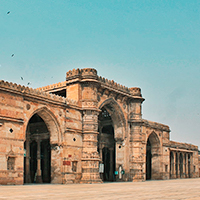
Ahmedabad
Behind the rumbling commercial hub and high rises of Ahmedabad lies a city with a history and heritage that run deep into the past. Declared by UNESCO as India’s first heritage city, its lanes and streets bear sites ranging from palaces and tombs to stepwells and structures that boast of diverse modernist architectural styles. Besides a built heritage, its vibrant textile traditions and distinctive cuisine add to the charm of this old city.
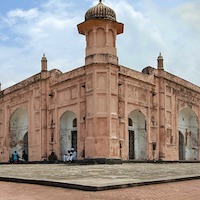
Aurangabad
Recently declared the ‘Tourism Capital of Maharashtra’, Aurangabad serves as a major tourist hub for the state of Maharashtra. This city offers its visitors a rich tapestry of sights, sounds, and textures, from ancient UNESCO Heritage Sites to markets brimming with exquisite silk items and gorgeous hand-woven garments.
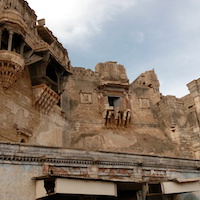
Kutch
Kutch's landscape exhibits an unusual degree of eco-diversity due to its inclusion of arable plains, grasslands, marshes, mangrove forests and deserts as well as the salt flats, coral reefs and creeks of the Little Rann and the Gulf of Kutch. The crafts of Kutch are deeply ingrained into the lifestyle of the local communities who practice and utilize them; in addition to serving as a means of employment and employment, they are also a creative expression of each community's distinct cultural life and identity.
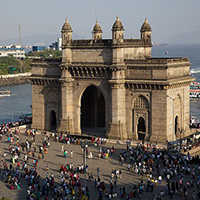
Mumbai
Mumbai, officially named Bombay until 1995, is the financial capital of India and the home of India's Bollywood film industry. Also called India's "maximum city", Mumbai is known for its extreme standards of living, fast paced lifestyle, and the making (or breaking) of dreams. It's a cosmopolitan and increasingly westernized city that's an important base for industry and foreign trade.
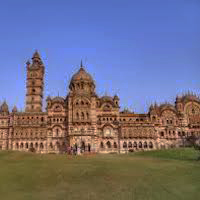
Vadodara
Built across the Vishwamitri River, the city of Vadodara is considered to be Gujarat's cultural capital. The city boasts of a rich heritage with it's roots dating back to 2000 years ago. The outstanding trait about Baroda’s cultural life is that it is remarkably cosmopolitan, and has welcomed people from all over the country and the world.
-
EXPERIENCES
Contemporary Art
Visit exhibitions held by painters, sculptors, ceramicists and weavers, interspersed with lecture programs and art workshops. Explore the evolution of Indian Art and Craft from a village artisan’s workshop to a metropolitan designer’s studio.
Heritage monuments
Visit a beautiful mausoleum dedicated to the wife of a Mughal Emperor, an ancient hill fort, a complex that houses a 300-year old tree and caves that were carved from soft rock during the sixth and seventh century, sculpted with mythology.
Heritage walk
Discover the old city charm of Gujarat’s cultural heartland in a heritage walk covering bustling marketplaces, a quaint mosque, and an imposing fort that once served as the principal eastern entrance to the king’s palace.
Indian Metropolis
Discover what makes Mumbai a cosmopolitan city, in its culture, heritage and a meteoric growth bound by extremities. Drive by the landmark Gateway of India and a string of buildings displaying stunning Victorian Gothic-Revival architecture.
Textile and Crafts
Experience the meticulous process of creating a textile that has kept alive since the 12th century. Explore the decorative woodwork on the columns of ancient temples and find the traditionally used fabrics of shrine cloths and religious narratives painted using pens of bamboo.
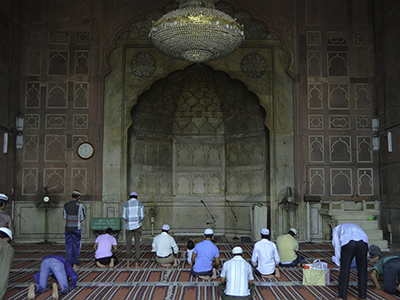
Drops of the Same River
This journey takes one across the different states in North India, offering a gentle immersion into the many religions that shape the life of its people...
Bespoke Journey • North India
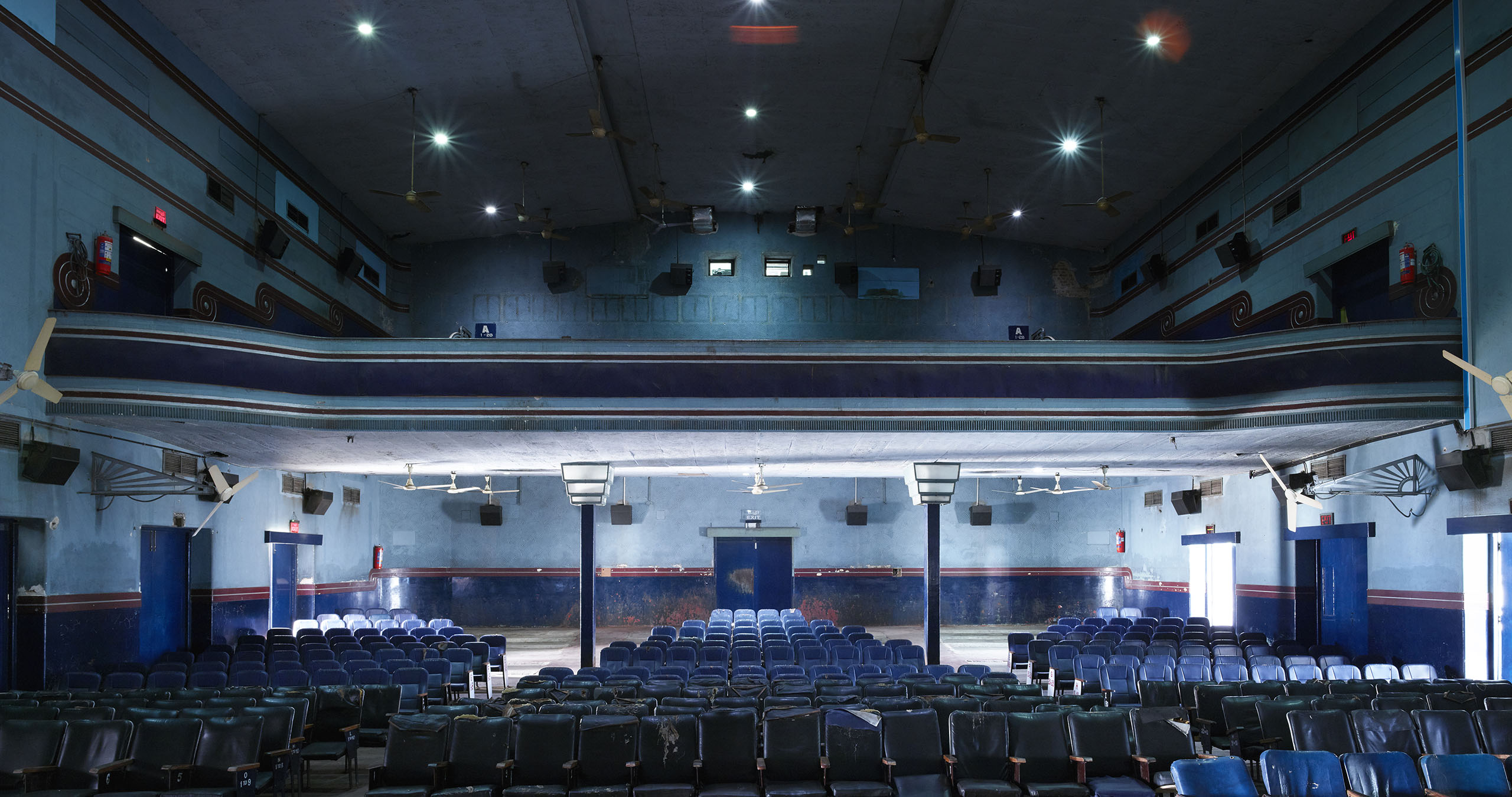
Cathedrals of Ecstasy
Retrace our steps with Hole & Corner as we explored the derelict performance spaces of Chennai and Madurai in the south...
Behind-The-Scenes • South India
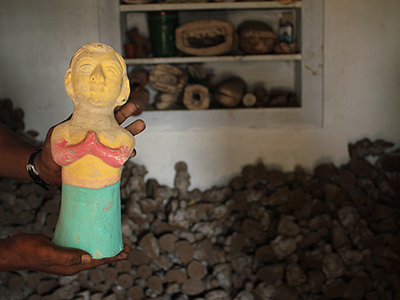
The House of Toys
In Vilachery, near Madurai, all come to find an icon, an idol, a doll, a toy...
Narrative • Tamil Nadu
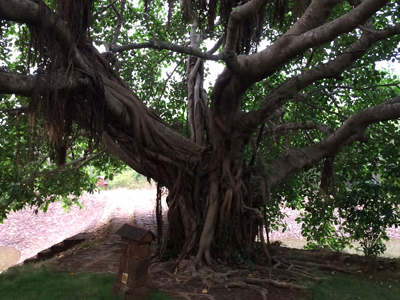
Rediscovering the Inner Self
In March of 2014, I joined Rosenda for a week-long retreat at beautiful Swaswara in Gokarna...
Narrative • South India
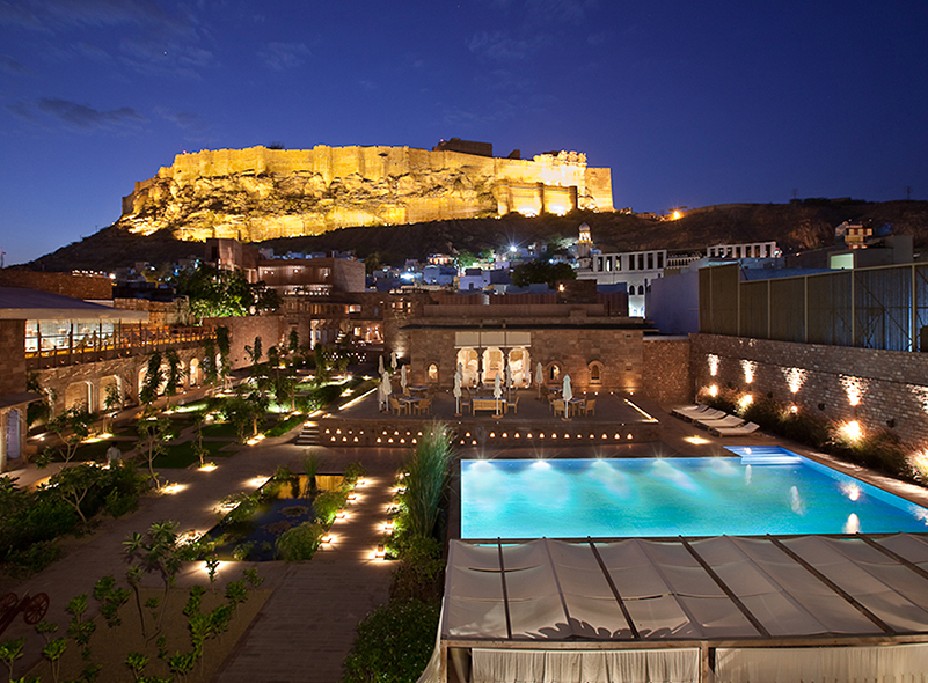
RAAS Jodhpur
The walls of old Jodhpur hold stories of ancient and modern worlds - of a glorious past lost in a...
Hotel Guide • North India
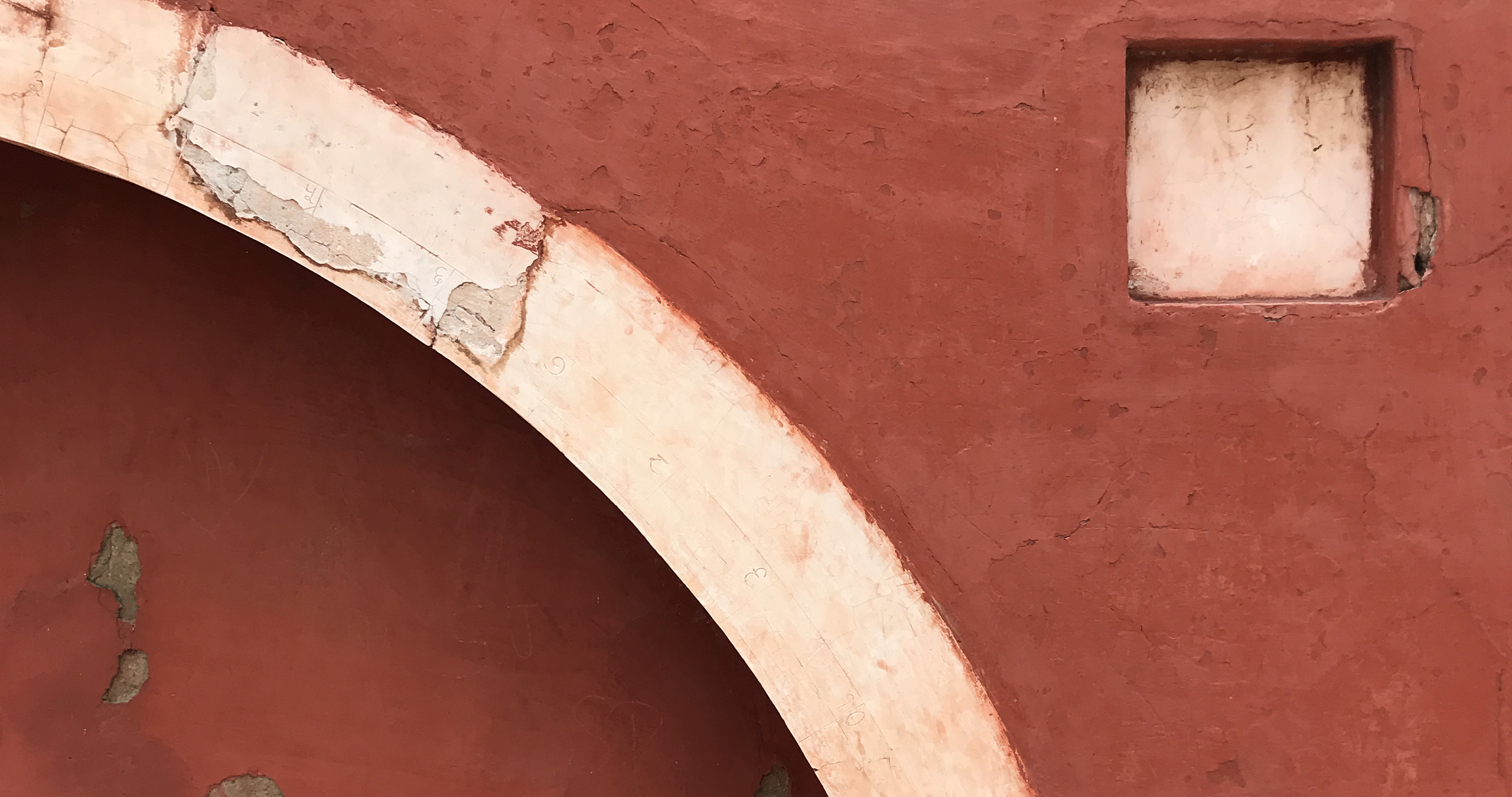
Blueprint of a Dream
To rediscover the legacy of master architects and feel the passion of such creations, we travelled to Chandigarh, Amritsar, and Delhi with Openhouse Magazine...


